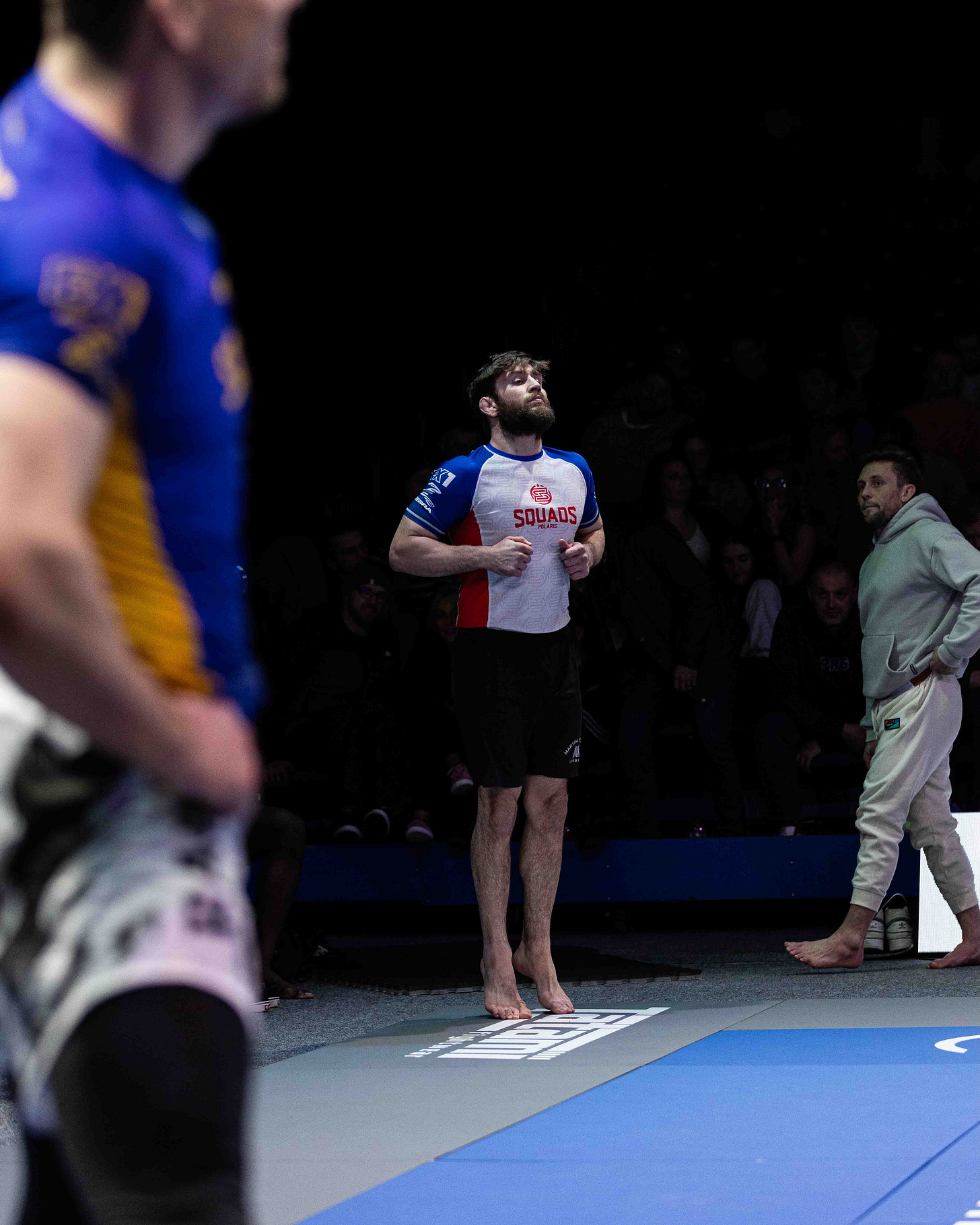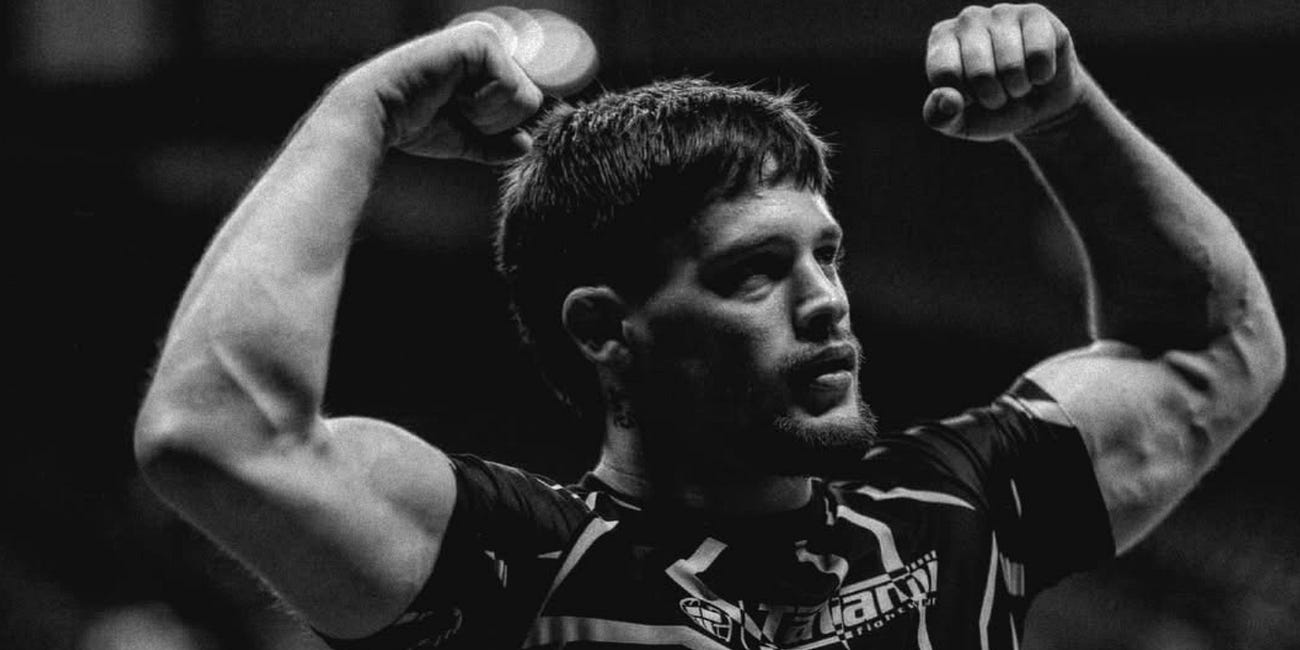
I started Jiu-Jitsu in 2015.
I recently hit my 10 year training anniversary. I don’t remember the exact day because I was 17 and you don’t keep track of these things when you’re 17, but it was a day in early April. Right after spring break.
For a long time, Jiu-Jitsu was just a hobby that I took very, very seriously.
It would be 9 years before I could confidently say, “I do what I love for a living”.
9 years of:
Training
Traveling
Competing
Teaching
Writing
Publishing
Investing in myself
And more.
Today, I’m going to tell you how I went from amateur to pro in Jiu-Jitsu as an athlete and writer, and the key mindset shifts that happened along the way.
Pros work like pros.
I’ve always viewed training and writing as an essential part of my daily schedule, but a shift happened in the last year that changed the way I view preparation in my crafts.
I used to show up to training every day and work as hard as I could to be the best that I could be. 6-7 days per week, I was on the mat trying to silence my anxiety and self-doubt through rigorous exercise.
Likewise, when I started writing, I used to show up at the computer and do my best to write as many great articles as possible.
The shift that happened that allowed me to go pro was that I stopped viewing my work as simply a part of my day, and I started viewing it as the vessel to help me live the life that I wanted to live.
I began to value my mat time far more than before.
Training wasn’t just a part of my life as a grappler, it was the non-essential aspect of every single day.
If it was a work day, no matter where I was in the world or how I was feeling, I was on the mat doing whatever it took to be the best I could be.
Pros train like pros, which means that they work daily with the goal of being better each day.
Pros make hard decisions.
Another big part of being a professional grappler and writer has been learning how to make sacrifices.
Giving up short-term dopamine for long-term progress, health, and cheap opportunities for bigger goals.
Skipping a second session today so I can train better tomorrow. Doing a second hard session today so I can win in a month or several months. Investing in a writing course and not seeing the payoff for weeks or even months (or years) afterward.
It also means making tough business decisions.
The tough part of me has been that for the longest time, Jiu-Jitsu was my hobby. That means that all of my best friends and favorite people have also come from Jiu-Jitsu. Heck, I wouldn't have met the love of my life if it weren’t for Jiu-Jitsu.
A key lesson that I’ve had to learn is that to do anything professionally, you need to make hard decisions with your future, your loved ones, and your best interests in mind.
Even if that means saying no sometimes.
Pros make sacrifices.
Nearly 2 years ago, I moved my whole life to Austin, Texas, to chase my Jiu-Jitsu dream.
I left my old gym, my friends, my family, and the financial stability that I had in the Midwest. I ventured into the unknown.
A new part of the country with new people, a different culture, a different mindset, and a dull reminder in my head that this could be a terrible mistake.
This is just one example of the many sacrifices that you have to make when you do something like Jiu-Jitsu professionally.
In the past, I’ve also sacrificed thousands of dollars, my health (physical and mental), my personal life, and more.
A pro knows (or is willing to learn) which sacrifices are worth their pound of flesh.
If you want to do something uncommon, you must make uncommon sacrifices.
Pros don’t allow setbacks to influence their efforts.
In the time since I have committed to doing Jiu-Jitsu professionally, I have experienced a number of setbacks.
Financial stress, injuries, competitive losses, and more.
In 2023, I spent more than $10,000 on my career development as an athlete and writer, and I didn’t see any return until midway through the following year. At the time, it felt like I took a big swing at the life I wanted, and I whiffed so hard that I fell on my backside.
In February of last year, I spent thousands to fly myself across the world to compete in the ADCC Trials in Europe, and I lost in the 3rd round despite being one of the favorites and top seeds.
When you’re a pro, you are not Superman.
You still experience failure, loss, anxiety, fear, and the sense that everything is going to hell. It’s part of the process.
What makes a pro different from an amateur is that you don’t allow those feelings to drive your process.
Win, lose, draw, or mental breakdown, you’re in the gym the next day working on your skills. You’re at the computer the next morning, writing something.
You’re doing the work, regardless of what happens.
Closing Thoughts
Trying to do Jiu-Jitsu and write professionally taught me valuable lessons about discipline, self-improvement, and myself.
I learned that I am stronger and more durable than I thought. I learned that often, our body bends to what is expected of us. You are stronger in a tougher environment than in an easier one.
Going pro also taught me one other valuable lesson.
It taught me that you can’t be excellent at everything.
Yes — I’m pretty good at Jiu-Jitsu and writing, but this is only because I devote pretty much all of my time to trying to be excellent at them. Many of the other things in my life, like cleaning the house, being patient with others and myself, or simply driving my car, I am not so good at.
I need to work on them.
It’s just hard because, well, I have to train and I have to write.
These are the things that pay the bills.
The Grappler’s Diary is sponsored by BJJ Mental Models, the world’s #1 Jiu-Jitsu podcast!
This week we're joined by Nick Volpe!
Nick is the black belt head coach at Dark Bear Jiu-Jitsu in Staten Island, New York. In this episode, Nick explains how he makes Jiu-Jitsu coaching accessible to students and coaches of all experience levels.
Topics include: self-organized learning, teaching the "why" behind techniques, the importance of timing, creating objectives that guide student progress, and layered difficulties during live resistance training.
To listen, look up BJJ Mental Models wherever you listen to your podcasts, or just hit this link.
Love reading The Grappler’s Diary?
Hit this link to pick up a copy of my BJJ book!
This book has been proven to:
Make you think
Help you through hard times on the mat
Assist you in realizing if your BJJ gym is a cult
And much more.
Hit this link to pick up a copy of what some are calling “The Best BJJ Book on the Market!”
Want to write for The Grappler’s Diary?
Do you have a Jiu-Jitsu story that you want to share?
I’m officially taking submissions for guest articles to The Grappler’s Diary.
Our newsletter reaches tens of thousands of readers on Substack every month and hundreds of thousands of readers on Instagram.
If you’d like to have your story featured in our newsletter and blasted across all social platforms, please send a no more than 250-word pitch to info@chrismwojcik.art. Our content calendar for March has already been filled.
Currently, I’m looking for contributions that will be run in late April and early May.
All pitches will be read and reviewed. Contribution pieces must be no more than 2000 words.
Also published this week:
How to Learn Jiu-Jitsu Faster
Today’s post was written by Kade Tsitos. Kade is a black belt under Vagner Rocha, a brown belt world champion, and is currently ranked #13 in the world at 155 pounds. He’s also the head instructor at Carbon Submission Grappling in Fort Lauderdale, Florida.
Thank you for reading another edition of The Grappler’s Diary!
If you enjoyed reading this article, share it with friends! Or, click on the ❤️ button on this post so more people can discover it on Substack!





